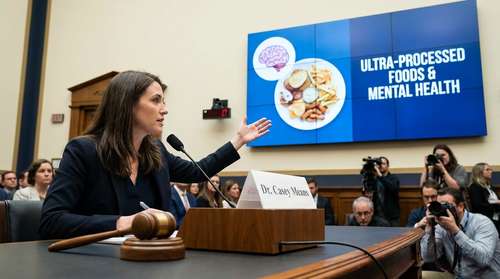This new course is a breath of fresh air for everyone involved in foster care. Foster carers, who work every day to provide safe and nurturing environments, now have the opportunity to develop the skills needed to support children who have faced tough times. Offering over 180 hours of comprehensive training, this course from the University of East Anglia is designed to truly empower these carers. It’s not just about theory – it’s a practical guide to understanding trauma and addressing it in daily interactions.
When you think about the challenges foster carers face, you realize that every day is a balancing act between patience, understanding, and skill. Managing trauma-related behaviors can seem as intricate as solving a puzzle, yet this course unpacks that complexity step by step. It’s not only educational but a way to build deeper, more empathetic relationships. The course stands as a shining example of practical education meeting real-life needs, ensuring that every foster carer is ready to give their best in the face of adversity.
Overview of the Course
The University of East Anglia has rolled out this specialist therapy course with the aim of transforming how foster care is approached. With over 180 hours of training, the course provides a robust foundation in trauma-informed care. This section explains what the course is about and its potential impact on daily care routines.
This initiative focuses on areas that are critical to effective foster care, such as understanding trauma, the importance of emotional support, and strategies for managing challenging behaviors. It's like a toolkit that fosters not just academic knowledge but also practical skills essential for everyday success. By blending academic research with real-life examples, the course helps carers see how theoretical concepts apply practically.
Another important aspect of the program is that it includes a professional qualification. This isn't just a certificate for display on a wall; it is a mark of achievement that validates the dedication and hard work of foster carers. Those who complete the training are better equipped to create a stable and nurturing environment, ensuring that every child in foster care can heal and thrive.
Understanding Trauma and Its Impact
This section dives into the core of the course: understanding trauma. Recognizing the signs of trauma and knowing how to respond appropriately is critical when working with children who have experienced significant hardships.
The course explains that trauma isn’t just a buzzword—it’s a complex set of experiences that can drastically affect a child’s behavior and overall mental health. By unpacking these concepts, the training offers foster carers real-world strategies that can be implemented immediately. The approach is hands-on, giving carers the tools they need to read subtle cues in behavior and react with empathy and patience. It’s like having a user manual for the human brain when it’s in crisis mode.
In many ways, understanding trauma is akin to deciphering a complex language. The course helps decode this language by breaking down behavioral signals and teaching carers to interpret them correctly. This understanding is crucial for preventing misunderstandings, which can sometimes lead to further emotional distress for the child. In turn, the bond between the carer and the child becomes stronger and more resilient in the face of challenges.
Benefits for Foster Carers
This part of the course is particularly inspiring because it puts foster carers at the center of the conversation. The training offers tangible benefits that can be applied daily, making foster care a more supportive and understanding environment for both the carer and the child.
For one, the course grants a sense of confidence. When you complete a specialized training that covers both theoretical and practical aspects of trauma, you’re not only better prepared to handle crises but also empowered to build healthy relationships. The skills acquired extend beyond addressing trauma; they also include elements that reflect the principles of mental health first aid and first aider training. These skills are essential in any setting where mental health is a priority, from peer specialist support networks to even related fields like therapeutic massage courses which emphasize mindfulness and care.
This course also provides a platform for ongoing professional development. Carers who have undergone training often feel a renewed sense of energy and purpose, serving as role models in their community. The personal growth and professional validation that comes with completing such an intensive program cannot be underestimated. It’s an investment in both a career and a calling—helping others heal while growing personally in the process.
Integrating Mental Health First Aid and Related Skills
This section highlights how the specialist therapy course integrates broader mental health concepts, including mental health first aid and first aider training. For foster carers, having a solid grounding in these areas is indispensable. It’s not just about knowing what to do in a moment of crisis, but also about building an environment where mental health is consistently prioritized.
Drawing on the principles of mental health 1st aid, the course illustrates how quick, compassionate responses can mitigate long-term effects of trauma. Imagine having a toolbox filled with strategies that act as preventative measures. That toolbox includes everything from crisis intervention tactics to simple everyday methods that ensure a supportive home environment.
The course also makes it clear that the mental health challenges faced by children in foster care can sometimes mirror the complexities seen in fields such as therapeutic massage classes or therapeutic massage courses. Just as these courses help individuals learn relaxation techniques and stress alleviation, this specialist course serves as a means to develop a calm, nurturing approach that promotes healing. It’s fascinating how skills in one area can resonate so well in another, offering a multidimensional approach to care.
In addition, the training covers the importance of peer support. Connecting with others who understand the struggles of foster care creates a network of mutual assistance, much like what you would expect in peer specialist groups. These networks help foster a community where experiences are shared, challenges are discussed, and victories are celebrated. It’s the kind of supportive structure that makes a significant difference in everyday caregiving scenarios.
Real-World Impact and Future Prospects
This course is not just an academic exercise—it’s poised to make a tangible difference in the lives of foster carers and the children they care for. The potential to impact mental health positively within the foster care system is immense, and the course promises to be a game changer for many caregivers across the country.
Imagine acquiring skills that not only help you understand the emotional turmoil of children but also provide the confidence to address those challenges head-on. Carers will see improvements in their day-to-day interactions, and children will benefit from a more informed and compassionate environment. These real-world improvements are what set this course apart from more traditional training approaches.
Looking ahead, the program’s success could pave the way for even more specialized training modules that touch on other areas of foster care. The integration of skills from various fields—from mental health first aid to insights derived from therapeutic massage schools near me—shows how multidisciplinary training can provide comprehensive support for those in foster care. This cross-disciplinary approach is as innovative as it is necessary, ensuring that the conversation around mental health remains dynamic and inclusive.
In summary, this course is a much-needed initiative that addresses the urgent need for specialized support within foster care. With a robust 180-hour training program, practical strategies for understanding and managing trauma, and the bonus of professional recognition, foster carers are truly being put in the driver’s seat. It’s an empowering move that promises not only to boost individual confidence but also to elevate the overall standard of care across the board.
If you’re a foster carer or someone interested in the evolving landscape of mental health support, this course offers an opportunity you don’t want to miss. The journey toward excellence in foster care is paved with knowledge, empathy, and a commitment to continuous improvement. Now, more than ever, there’s no better time to invest in these essential skills!




